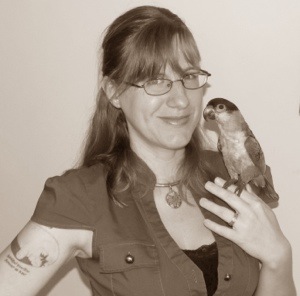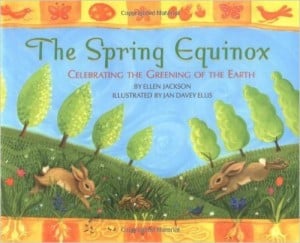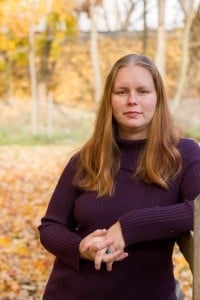By Wendy L. Callahan
When we have a child, we have many decisions to make: breast or bottle? Co-sleep or crib? Back to work or stay at home? Homeschool, public or private school?
One decision that often comes with a surprising amount of wrangling, arguing and contention is naming. Everyone has an opinion on which names are appropriate and which names are absurd. Coming to an agreement with our partner, if there is one (or perhaps more than one) involved in the decision, is usually the first hurdle. Try as I might this year, I could not convince my husband that “Persephone Jane” was a perfectly lovely name for our soon-to-be-born daughter. However, once we settled on “Rowan Alice”, there were a few remarks from folks who said they considered the name “masculine”.
The thing about naming is it often has deeper meaning for the parents. Yes, some people – particularly celebrities – go for the shock value of an inherently ridiculous name. However, most of us choose a name for our children with great care and consideration for what that name represents.
We deliberately chose what, for us as a Pagan family, is a magickal name.
Over ten years ago, I did the same for my son. When I chose “Gavin” in 2002, prior to its spike in popularity, I did it with specific magickal intentions. I chose it for the connection to Sir Gawain, one of Sir Arthur’s greatest knights. It probably should not come as a surprise to me that my pre-teen son is now an adamant defender of young children from playground bullies, speaks of girls and women very respectfully, and prefers to heal rifts, rather than create them.
In some legends, Sir Gawain’s power also waxed and waned with the sun, like many of the major male deities in Paganism. Thus, I refer to my fair-haired, often sun-tanned son as “my little Sun God” at times.
By contrast, I refer to my unborn daughter (she is due in January) as “my little Goddess girl”. In Celtic mythology, the Rowan tree symbolizes protection, vision, mystery, and so much more. It is a beautiful and hardy tree, and its wood is often used to create divining rods. Each Rowan berry has a five-pointed star at its base, and the tree is sacred to the Goddess. Once again, the name we have chosen for our daughter carries very powerful Pagan symbolism, and it was chosen with this in mind.
This sort of deliberate magickal naming carries very powerful energy.
You need only look at countless fairy tales, myths and legends of creatures who would not permit mere mortals to know their true names to know this belief has endured for centuries. In those stories, if a mortal learned the creature’s name, they also gained power over that creature. The power of a name was considered as much a downfall, as it was a boon.
The Jews consider God’s true name a word of power. Then again, some Christians might consider certain names so abhorrent, they cross themselves for protection when they hear those names. There are also languages of power, such as the Enochian alphabet and the runes of the Elder Futhark. In Paganism, when when we select a magickal name for use in a group or ritual, we do not take this lightly. We are looking for a name that represents a quality we might want to enhance or cultivate in ourselves, or a deity we would like to honor.
Deliberate magickal naming is not just a Pagan practice. Many of us know people who specifically give their children Biblical names to honor the figures in those stories. The only difference in this instance is the pantheon of myths selected by the parents.
Many of us also name our children in a way that honors family members, living or deceased. My son’s middle name is his father’s first name, a tradition in my ex-husband’s family.
My own family has a tradition of handing down middle names from generation to generation. My middle name is the same as my mother’s middle name, and my sister’s middle name is a feminine version of our father’s. Since having children, my sister has continued this practice, passing on her middle name/our father’s middle name to one of her daughters and one of her sons. Little Rowan’s middle name is both in honor of a great-aunt I never knew, and a popular Victorian literary character.
Names also stick with us as far as the impressions they make. They carry powerful associations. You may hear people say, “I never met a ________ I liked.” Goodness knows I’ve put up with juvenile jokes about a fast food restaurant for years. In fact, I hated my name until I finally met my mother and asked her, “Why did you name me ‘Wendy’?” She answered that she specifically named me for “Wendy the Good Little Witch”.
Why, yes, my name and I have been on much better terms ever since.
Another thing parents often consider when naming their children, is what kind of person they might become.
I always hoped my little “Gawain” would grow to respect others and treat them with kindness. I wanted him to be compassionate and just, and the first time I saw him defending a small child from a large bully, I was beyond proud. Did I actually expect him to grow up as a defender of those in need? Not at all. Yet he did.
Is that due to his name? It’s a possibility. The power of such a name certainly does not negate my parenting and the ideals I believe I’ve nurtured into my son as he has grown over the years.
However, I will not discount the long history associated with the power of words and naming.
Wendy L. Callahan is an urban and steampunk fantasy author, Pagan writer, homeschooler, and genealogist from Bridgewater, Massachusetts. She currently lives in England with her husband, son, black-headed caique, and three cats (one of whom is certifiably demonic – at least, according to military veterinarians).
Want more about Pagan naming? Check out these posts!

















